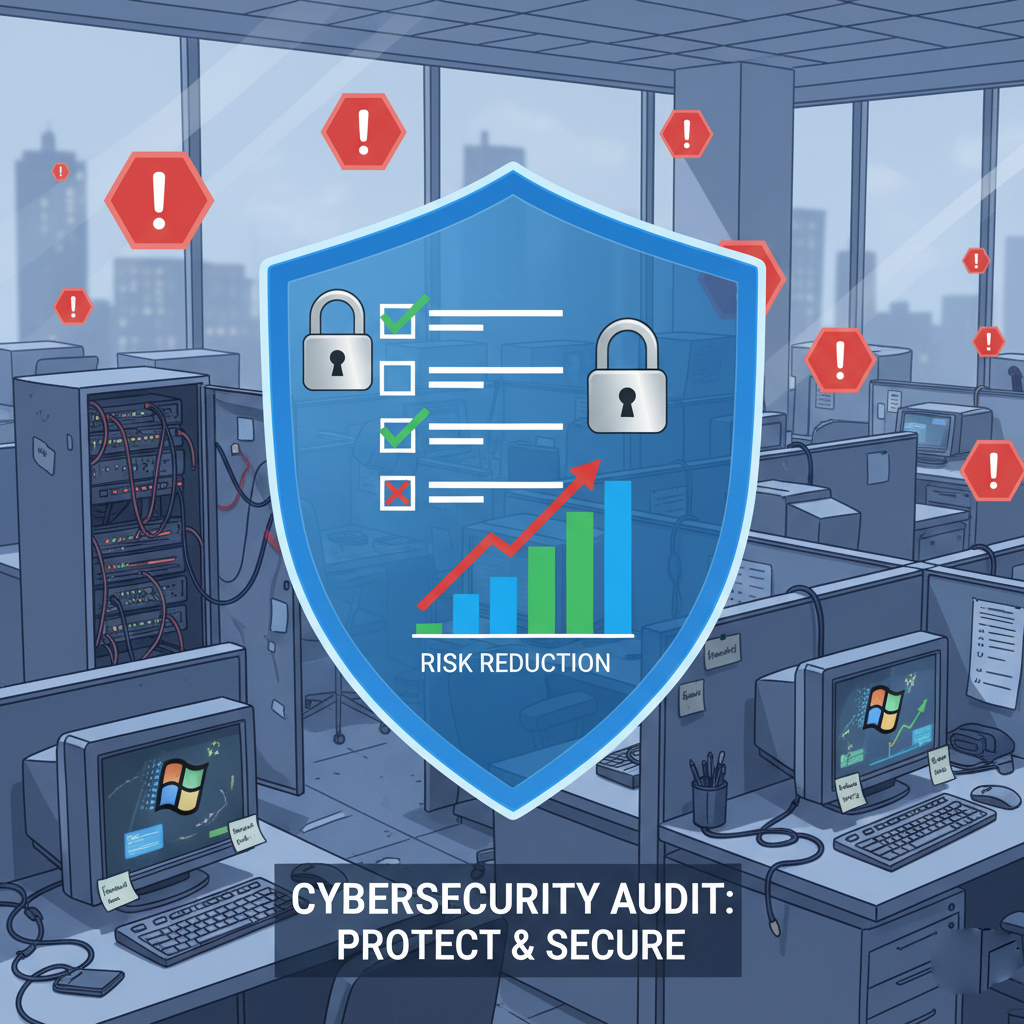In 2025, cyber threats are more aggressive, regulations are stricter, and customers expect data security. If you’re not already conducting regular risk reviews, it may be time to consider a cybersecurity audit for businesses.
Whether you’re a small business owner, a tech lead, or a compliance manager, this guide breaks down the top 10 signs it’s time to get your cybersecurity posture checked — before a breach, fine, or system failure hits.
1. You’ve Never Done a Cybersecurity Audit
This is the biggest red flag. If your company has never gone through a cybersecurity audit for businesses, you likely have multiple unknown vulnerabilities.
An audit gives you a clear picture of risks, helps with compliance, and sets a benchmark for improvement. Without it, you’re guessing — and guessing doesn’t stop cyberattacks.
2. You Store or Process Customer or Employee Data
If you collect any kind of personal information — emails, phone numbers, payment details, employee records — you’re a data controller under GDPR. That means legal obligations, not suggestions.
A cybersecurity audit for businesses ensures that you’re protecting that data properly and legally.
3. You Support Remote or Hybrid Work
Remote work setups introduce vulnerabilities that don’t exist in on-site networks. Unsecured Wi-Fi, outdated personal devices, and shadow IT can expose your systems to attack.
A cybersecurity audit for businesses will review these new entry points and make sure proper protections — like VPNs, MFA, and device management — are in place.
4. You’ve Scaled Quickly
Growth is great, but it often outpaces IT controls. If your team has expanded, added tools, or opened new locations, it’s time to reassess.
A cybersecurity audit for businesses aligns your security systems with your new size and complexity. It also uncovers misconfigurations that often happen during fast growth.
5. You’ve Experienced a Security Incident
Whether it’s a phishing attempt, data leak, ransomware attack, or even suspicious activity, any security incident is a signal to act.
A full cybersecurity audit for businesses helps determine what went wrong, where your defenses failed, and how to prevent a repeat.
6. You’re Not Sure Who Has Access to What
When access permissions are unclear, you open the door to insider threats, privilege abuse, and data leaks. Are ex-employees still in your systems? Can interns access financial records?
A cybersecurity audit for businesses maps out who has access to what — and makes sure it’s appropriate, controlled, and monitored.
7. You Don’t Have an Incident Response Plan
If a breach happened today, what would your team do? Who would be notified? How would you contain the damage?
If you can’t answer that confidently, a cybersecurity audit for businesses will help you develop and document an actionable incident response plan.
8. You’re Preparing for Certification or a Client Review
Trying to meet ISO 27001 requirements? Completing a vendor security questionnaire? Going through client due diligence?
A cybersecurity audit for businesses helps you identify and close compliance gaps before they become liabilities.
9. You’re Using Outdated Software or Legacy Systems
Unsupported operating systems, unpatched applications, or legacy tools are among the top causes of modern breaches.
A cybersecurity audit for businesses checks your entire tech stack for outdated software and recommends updates or compensating controls.
10. You Assume Your Antivirus Is Enough
Basic antivirus or firewall software alone is no longer enough. Modern attacks bypass these easily using social engineering, credential stuffing, or unpatched vulnerabilities.
A cybersecurity audit for businesses evaluates your full defense posture — including detection, response, recovery, and employee training.
What’s Included in a Cybersecurity Audit for Businesses?
- Risk assessments across all digital assets
- Access control and permissions review
- Data handling and compliance checks
- Network and endpoint vulnerability scans
- Policy and process evaluations
- Actionable recommendations
The goal: to reduce risk, improve resilience, and ensure you’re prepared for audits, attacks, or both.
Final Thoughts
A cybersecurity audit for businesses is more than a checklist — it’s a smart, strategic investment. If any of these 10 signs apply to your company, the best time to act is now.
Waiting until after a breach could cost you far more than time and money — it could cost you trust.

